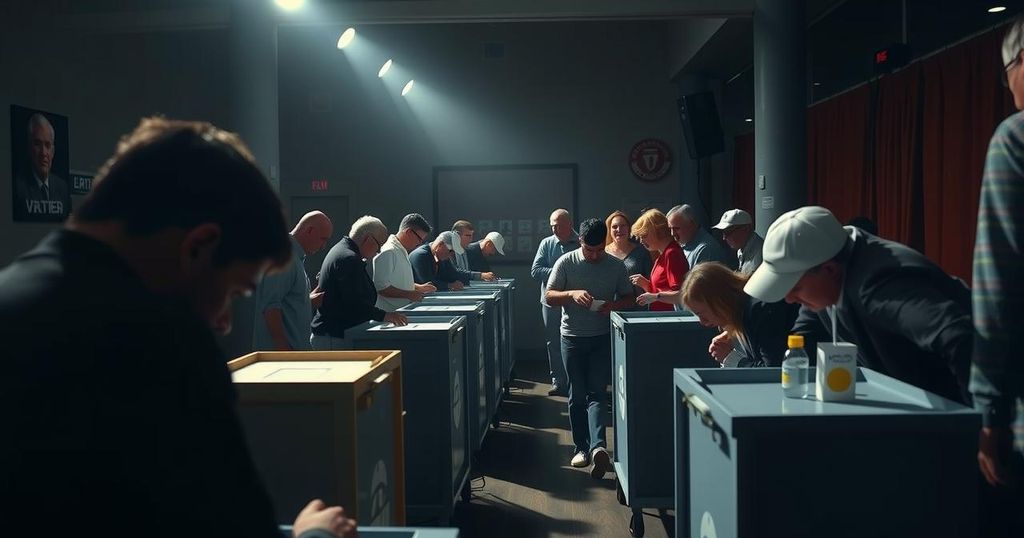Uruguay’s Presidential Runoff: Moderates Compete in Close Election
On Sunday, voters in Uruguay will participate in a closely contested presidential runoff between opposition candidate Yamandu Orsi and conservative Alvaro Delgado. The election, indicative of moderate political dynamics in Uruguay, may hinge on economic perceptions and the need to attract undecided voters. Polls indicate a possible narrow margin between candidates, with significant stakes for the country’s governance.
In a highly anticipated runoff election on Sunday, Uruguayans will decide between two moderate candidates, Yamandu Orsi of the opposition Broad Front and Alvaro Delgado of the National Party. Orsi, who embodies a modern leftist approach, garnered 43.9% of votes in the first round, while Delgado received 26.8%. The political climate in Uruguay contrasts sharply with that of neighboring countries, characterized by less polarization and significant crossover between political coalitions. Polls suggest a closely contested race, with fewer than 25,000 votes likely separating the candidates. The economy’s robustness may play a pivotal role in influencing voter sentiments toward Delgado, who seeks to maintain the current government’s course. Ballots will be cast from 8 a.m. to 7:30 p.m. local time, with preliminary results expected shortly thereafter.
Uruguay, with a population of approximately 3.4 million, is known for its political stability and progressive policies, including the legalization of marijuana. The upcoming election marks the conclusion of a year filled with crucial voting activities across the continent. Political dynamics in Uruguay differ from the stark divides observed in countries such as Argentina and Brazil, leading to a relatively calm electoral atmosphere. Both candidates are focused on attracting undecided voters and those who supported smaller parties in the initial round, while also considering the socio-economic issues affecting the electorate.
As Uruguay prepares for a decisive presidential election, the competition appears tightly contested, with candidates strategically positioning themselves to capture the support of undecided voters. While Yamandu Orsi advocates for a modern leftist stance, Alvaro Delgado relies on continuity and the popularity of the outgoing administration. With no coalition securing an absolute majority in the legislature, the future governance of Uruguay hangs in the balance, reflecting broader global trends in electoral politics.
Original Source: www.ndtv.com




Post Comment